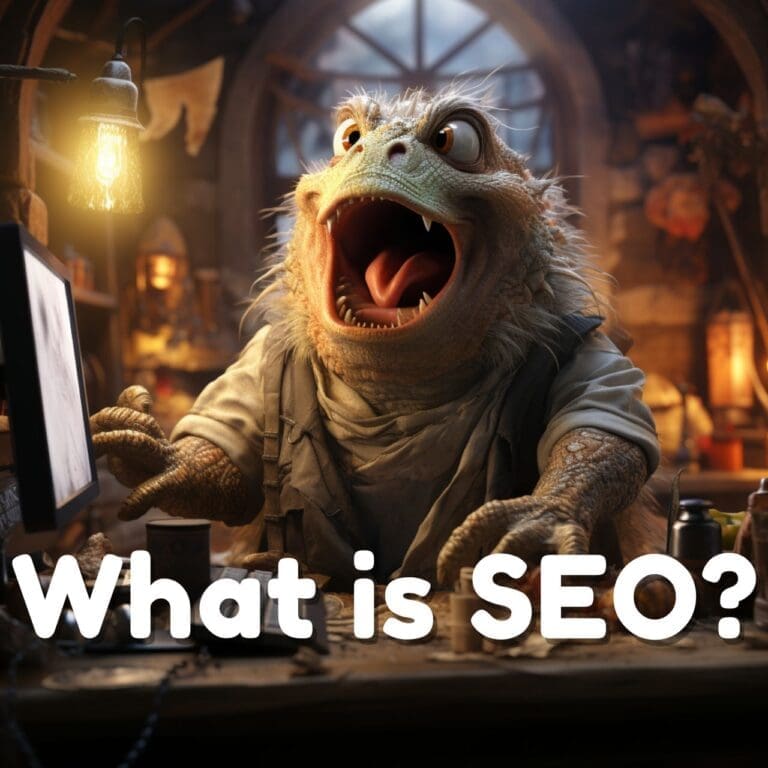Introduction
In today’s digital age, a solid online presence is crucial for businesses and individuals. One of the critical factors that can significantly impact your website’s visibility on search engines is SEO, which stands for Search Engine Optimization. In this beginner’s guide, we will explore the fundamental aspects of SEO, including strategies, techniques, and best practices that can help you improve your website’s rankings and drive organic traffic. Let’s dive in!
So, what is SEO?
SEO is optimizing a website to improve its visibility and rankings on search engine result pages (SERPs). When you search for something on a search engine like Google, the search engine’s algorithm analyzes various factors to determine the most relevant and authoritative pages to display. SEO involves implementing specific strategies and techniques to ensure your website meets the criteria set by search engines, ultimately leading to higher visibility and organic traffic.
Key Components of SEO
Keyword Research
Conducting in-depth keyword research helps identify the terms and phrases people use when searching for products or services related to your website. By optimizing your content around these keywords, you increase the chances of appearing in relevant search results.
The process typically begins by brainstorming potential keywords related to a particular topic or industry, followed by using keyword research tools to gather data on search volume, competition, and trends. SEO practitioners can determine the most valuable keywords to target by evaluating these metrics. Additionally, keyword research involves identifying long-tail, longer, and more specific phrases to capture niche audiences. The selected keywords are then strategically integrated into website content, including headings, meta tags, and page copy, to improve search engine rankings and drive relevant traffic to the website. Regular monitoring and analysis of keyword performance also allow for ongoing optimization and adjustment of SEO strategies.
On-Page Optimization
This includes optimizing various elements on your website, including meta tags, headers, URLs, and content. Ensuring these elements are appropriately structured and contain relevant keywords can enhance your website’s visibility to search engines.
On-page optimization involves technical and content-related techniques that enhance the website’s relevance and user experience. Technical aspects include optimizing meta tags (title tags and meta descriptions) to provide concise and accurate reports of the page’s content, utilizing proper heading tags (H1, H2, etc.) to structure the content hierarchy, and optimizing URL structures for readability and keyword inclusion. Additionally, on-page optimization involves optimizing the page’s loading speed, ensuring mobile responsiveness, and improving website accessibility. Content-related techniques include:
Incorporating target keywords throughout the content.
Optimizing image alt tags.
Writing compelling and relevant content that satisfies user intent.
By implementing these on-page optimization strategies, websites can improve their chances of ranking higher in search engine results and attracting more organic traffic.
Off-Page Optimization
Off-page optimization refers to activities performed outside of your website to improve its authority and credibility. This includes building high-quality backlinks from reputable sources, social media engagement, and influencer collaborations.
Off-page optimization primarily involves building high-quality backlinks from external sources to establish authority and credibility. Including guest blogging, social bookmarking, directory submissions, influencer outreach, and social media engagement. Although, we here at Local Digital have a propriety system for backlinks that does not involve a bunch of unrelated and uninvolved resources randomly pointing back to our sites. Regardless of how it is accomplished, the goal is to attract relevant and authoritative websites to link to the target website, signaling to search engines that the site is trustworthy and valuable. Off-page optimization also encompasses online reputation management, where businesses actively monitor and manage their online presence through customer reviews, brand mentions, and social media interactions. By implementing effective off-page optimization strategies, websites can improve their organic rankings, drive more targeted traffic, and strengthen their online reputation.
Technical SEO
Technical SEO focuses on the technical aspects of your website, such as site speed, mobile-friendliness, crawlability, and indexing. Optimizing these technical elements ensures search engines can easily access and understand your website’s content.
Website speed optimization includes minimizing file sizes, leveraging browser caching, and optimizing server response times to enhance user experience and reduce bounce rates. Mobile-friendliness ensures that the website is responsive and accessible on different devices, catering to the increasing number of mobile users. Proper URL structure and implementation of canonical tags help avoid duplicate content issues and consolidate link equity. XML sitemaps provide search engines with a comprehensive map of the website’s pages, aiding in efficient crawling and indexing. Additionally, optimizing robots.txt files ensures search engines crawl and index the intended content while avoiding unnecessary areas. By addressing these technical aspects, websites can enhance their visibility in search engine results and improve the overall user experience.
FAQs
How long does it take to see results from SEO?
SEO is a long-term strategy that can take several months to see noticeable results. It depends on various factors, including your website’s current state, competition, and the effort you put into optimizing your site.
Are there any risks associated with SEO?
While SEO itself is a legitimate practice, some techniques considered unethical or manipulative can lead to penalties from search engines. Following best practices and avoiding engaging in activities that may harm your website’s reputation is crucial.
Is SEO only crucial for large businesses?
No, SEO is essential for businesses of all sizes. Regardless of your company’s scale, implementing SEO strategies can help you increase visibility, attract targeted traffic, and compete with other companies in your industry.
Conclusion
Search Engine Optimization is vital in improving your website’s visibility on search engines and driving organic traffic. Understanding the fundamental concepts and implementing the right strategies can enhance your website’s rankings and attract more visitors. Conduct thorough keyword research, optimize your on-page and off-page elements, and focus on technical SEO. Stay updated with the latest trends and best practices in SEO to stay ahead of the competition. Start creating high-quality, engaging content that aligns with user intent and provides value. Over time, as you consistently optimize your website and produce valuable content, you can expect to see increased organic traffic and improved rankings.
Remember, SEO is an ongoing process that requires monitoring, analysis, and adjustment. Stay informed about algorithm updates, industry trends, and changes in user behavior to adapt your strategies accordingly.
Implementing effective SEO techniques and staying committed to optimizing your website can pave the way for long-term success in the online landscape.
For a quick overview, check out our post all about digital marketing.





